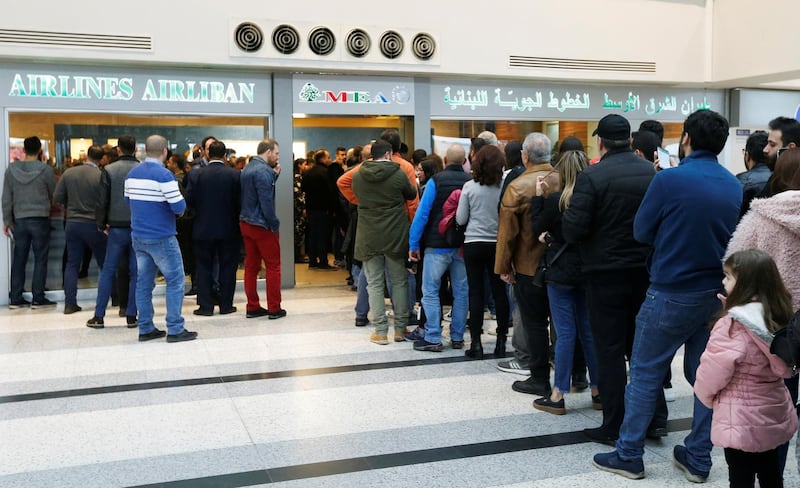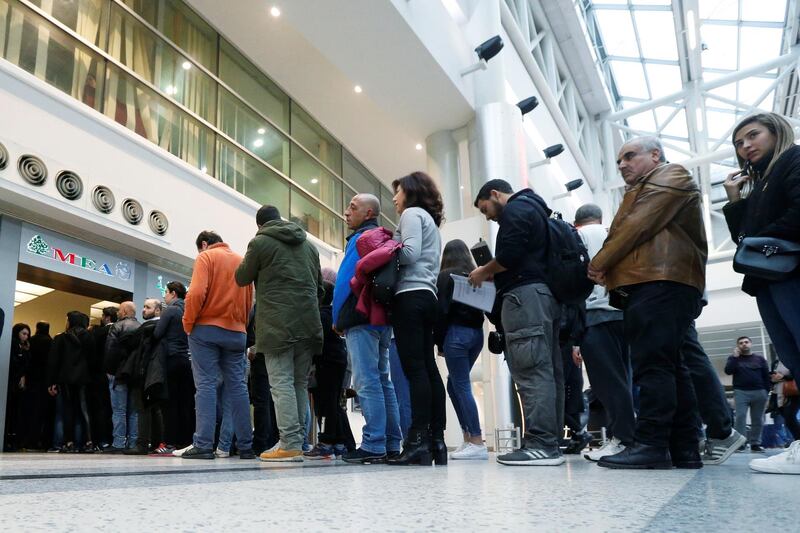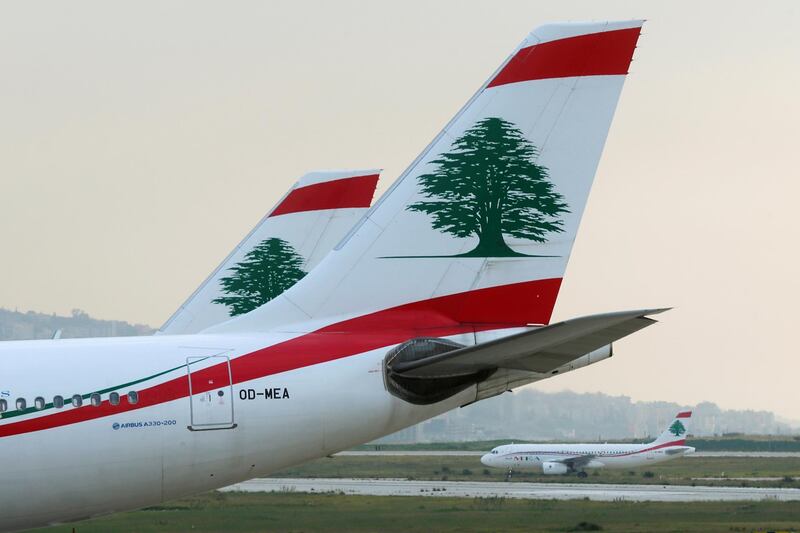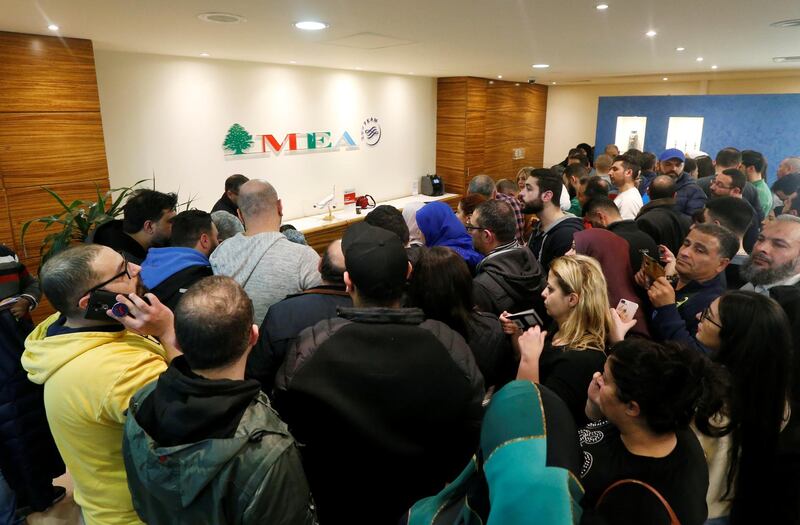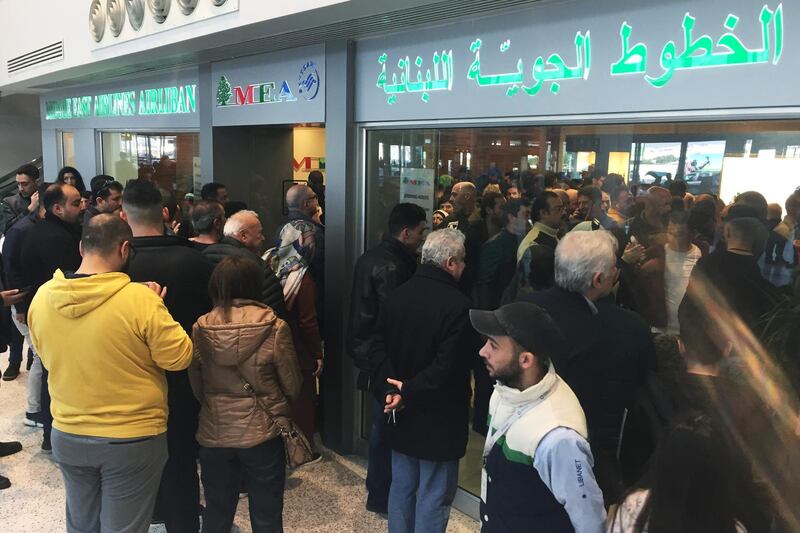Lebanon's Middle East Airlines has scrapped its plan to only accept payment in dollars starting from Monday, after the decision sparked anger among the Lebanese public.
The plan emerged as the country faced its worst economic crisis since its 1975-1990 Civil War.
Earlier on Sunday, Lebanon's National News Agency reported that the flag carrier, which is owned by Lebanon's central bank, would accept card payments and bank cheques as long as the transactions are made in a foreign currency.
"The Middle East Airlines and other airline companies operating in Lebanon announced Sunday that, starting tomorrow they will accept payments in dollars," NNA said on its website.
"The company also announced all card payments will be accepted in addition to bank cheques, provided that the operation is in foreign currency."
MEA did not immediately respond to a request for comment.
The airline's decision sparked furore online and the hashtag #boycottmea was trending on social media.
"MEA: A national airline that does not accept payment in its own national currency. Logic redefined," one user wrote on Twitter.
Another posted: "MEA belongs to the Lebanese state. It's a flagrant violation of the law. We're not heading for collapse, we're in the middle of it."
The country is grappling with a foreign currency liquidity crunch amid an unprecedented financial and political crisis and anti-government protests since October.
International reserves can only finance external needs until March 2021 before being depleted, data from Bloomberg Economics shows.
Lebanon’s public debt reached about $89.5 billion (Dh328bn) as of November, most of it held by the Lebanese banks.
The country is due to pay $1.2bn in March when a Eurobond hits maturity. Another $700 million is due in April and $600m in June.
Last week, the government formally asked the International Monetary Fund for help to overcome its economic crisis, but stopped short of requesting a bailout package.
Lebanon is one of the most indebted countries in the world, with a debt-to-GDP ratio that reached 166 per cent at the end of last year, the Institute of International Finance said.
An IMF deal could involve a restructuring that would mean 70 per cent of the government's debt is written off and the value of Lebanon's currency could plunge by half against the dollar, a research note by Capital Economics said.
"Past experience suggests that this will involve haircuts of up to 70 per cent," Jason Tuvey, senior emerging markets economist at Capital Economics in London, wrote in a note last week.
This "would wipe out banks’ capital and recapitalisation of the banking sector would amount to around 25 per cent of GDP".
But IMF technical assistance would limit any resulting strains on local banks’ balance sheets, Mr Tuvey said.
Government spending would need to be tightened by 3 to 4 per cent to prevent the ratio of debt-to-GDP from rising further, Capital Economics said.
"Austerity will focus on reining in the public sector wage bill and pushing through an overhaul of the state electricity company," Mr Tuvey said.
Spending on wages and transfers to the electricity company EdL account for almost half of total government expenditure. The company saps government coffers of about $2bn a year.
As with Egypt's case in 2016, the IMF would insist that as a condition to a deal the authorities devalue the Lebanese pound, Mr Tuvey said.
On the black market, the pound is already trading at a discount of more than 30 per cent to the official exchange rate against the dollar.
The IMF's latest review of Lebanon estimates the official exchange rate is overvalued by 50 per cent.
Capital Economics expects Lebanon's economy to contract by five per cent this year as it falls into a deeper recession.
